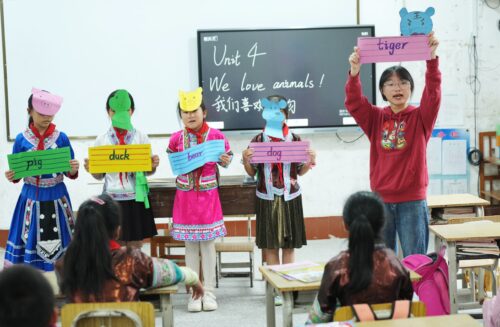China unveils new law against teacher-student ‘romances’ at elementary and secondary schools
New draft rules that ban inappropriate relations between teachers and students have won widespread support on Chinese social media, but critics are unhappy with the description of such relationships as “romances” rather than sexual crimes against minors.

Chinese officials are currently seeking public feedback on a draft regulation that requires tougher measures to address inappropriate teacher-student affairs in educational institutions — not universities but elementary and middle schools!
Although most social media users reacted positively to the proposed rule, some were up in arms over its wording, arguing that the law needs harsher words to describe educators who are in “romantic relationships” with underage students — such as “child abusers, sex offenders, or predatory pedophiles.”
The draft regulation, unveiled on Tuesday by China’s Ministry of Education, is part of a package of provisions (in Chinese) designed to protect the “lawful rights and interests” of students while on campus. In a section dedicated to the prevention of sexual violations against minors, the draft stipulates that schools must create and complete guidelines for teacher-student interactions, and develop a working mechanism to “prevent, report, and address” sexual violations committed by educators.
According to Article 35 of the legislation, schools need to take “necessary measures” to prohibit adults employed by schools and other persons entering the campus from participating in acts that are harmful to students’ physical and mental health, including having romantic or sexual relationships with students, showing them pornographic content, and making sexually suggestive remarks to them.
In other parts of the document, the Ministry orders schools to protect various student rights, such as freedom of speech and action, equal access to educational and teaching facilities, and a non-excessive amount of homework. The Ministry also devoted several provisions to school bullying, directing teachers to handle reporting incidents of bullying in a timely manner, and encouraging school systems to discipline students who engage in bullying.
Describing it as an “ambitious” attempt by the Chinese government to create a “blueprint” for regulating the relationship between students and their schools, the China Law Translate project, which has translated most of the document into English and published the work on its website, noted that the draft was groundbreaking in acknowledging that “minors have rights” and “are able to assert them against authority.”
In recent years, cases of sexual offenses against minors have been frequently covered by Chinese news media, and society’s reactions to these allegations has become increasingly emotionally charged. To better protect children from sexual abuse, China’s revised criminal law — which just came into effect last month — raised the age of sexual consent from 14 to 16 in situations involving “special groups” like legal guardians and foster parents. It also pushed for tougher punishments for people who commit sex crimes involving minors, stating that perpetrators could face life imprisonment and even death sentences depending on the severity of the crime.
By prohibiting “romances” between teachers and students, the new draft — once passed — is supposed to make minors less susceptible to sexual abuse by adults at school, who usually use illlicit affairs as a disguise for their pedophilia and predatory tendencies. And for that reason, the draft has been met with a groundswell of support on Chinese social media.
“I thought it’s common sense that teachers shouldn’t date students. But apparently some educators need regulations to remind themselves not to cross boundaries,” a Weibo user commented (in Chinese). Others called for the rules to be applied in universities as well, arguing that even if a student is old enough to legally be able to consent to a relationship with an adult, it’s still unethical for professors and students to date because of their power imbalance.
Despite the overwhelmingly positive reactions to the draft, some critics raised questions about its wording, saying that even when a minor student voluntarily enters into a love affair with his or her teacher, consent is disregarded by law and the teacher should be deemed to have committed child abuse as a criminal offense. They argued that by labeling those affairs as “romantic relationships” (恋爱关系 liànàiguānxi), the regulation made creepy teachers’ offenses seem less severe than they actually were. “Teachers who have inappropriate relationships with minor students are pedophiles. Stop beating around the bush and start calling them out for what they are!” a Weibo user wrote (in Chinese).






